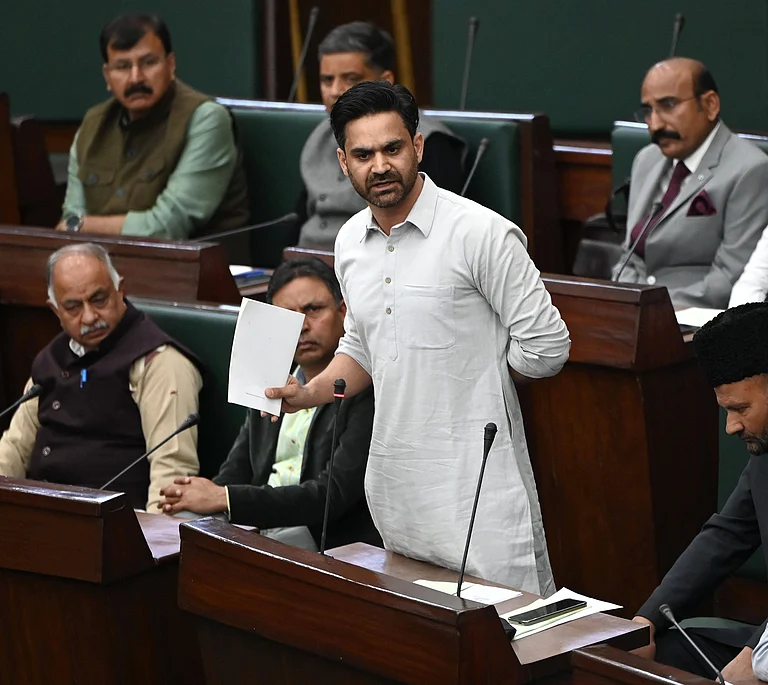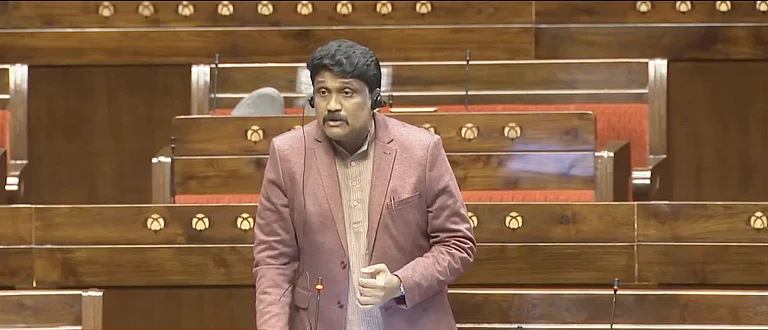WHAT would George Orwell think of this scenario? The petty trader pitted against a corporate giant backed by a Communist regime that dispenses with ideology and distributes soap and toothpaste to the proletariat.
That's the situation in Kerala, where the Left Democratic Front (LDF) government has committed itself to providing the people with Hindustan Lever Limited's (HLL) high-priced commodities through a chain of retail outlets, even as the trade lobby in the state has clamped a boycott on the company's products.
It all began with a March 25 communication by the state traders associations—the Kerala Vyapari Vyavasaya Ekopana Samiti (KVVES) and its affiliate unit the All Kerala Distributors Association (AKDA)—who argued that the distributor's margin of four per cent of the maximum retail price (MRP) and the retailer's margin of five per cent of the MRP were inadequate to meet the running costs of trading units.
They sought a 15 per cent increase on the retailer's margin or a 50 per cent hike on all prevailing trade margins, whichever is higher. The margins given in other states, they felt, should not be taken as the criteria for Kerala which is a high-wage economy compared to the rest of the country.
The state's rampantly consumerist ethos absorbs the products of around 150 multinational companies. Says A. Ravindranath, AKDA president: "We decided to target HLL because it is the biggest player in the market. If it agrees to increase its margins, other companies will follow suit." An HLL spokesperson counters this: "An individual trader has the opportunity to exercise his choice of which products to sell, based on their projectibility. Hence, there is no rationale for any collective action which harms the interests of consumers." HLL and the traders are now digging in for a protracted showdown. The traders associations have begun a mop-up operation to 'lift' HLL products from shop shelves across the state. And also demand that the company scale down its existing price structure.
The blanket ban on HLL products has led to declining sales and losses for the multinational, estimated at Rs 100 crore. This was only partly offset when the government began distributing HLL products through state-run Neeti stores and other cooperative outlets. Government outlets represent a fraction of the market and, with its 10-lakh membership, the KVVES is confident of keeping HLL out of the wider consumer market.
At first, only Lux and Lifebuoy brands were targeted. But after KVVES president Naseeruddin was arrested for intercepting an HLL truck in Kozhikode, the agitation took a violent turn. The company moved court when its officials were manhandled and the traders retaliated by extending the boycott to cover HLL's entire product range.
Government attempts to get the warring sides to the negotiating table were abortive. It even attracted flak for its zeal to 'rescue' HLL. Says KVVES state secretary P. Ramachandran: "The Left parties have been shouting from roof-tops about the threat posed by multinationals. Yet they go to great lengths to promote their products." Civil supplies minister E. Chandra shekharan Nair disagrees: "We should not permit competition detrimental to our economic interest. When we stand to benefit, there is no harm in dealing with foreign companies."
The state outlets have been selling its products for years, he points out, and an agitation by traders did not provide the grounds to reverse the practice. However, the Neeti stores are a duplication of the public distribution system that already exists in the form of Maveli shops—which sell essential commodities at subsided rates—and, consequently, have emerged as government showrooms for HLL products.
The company, on its part, has had to fend off allegations of profiteering. Over the last decade, HLL has allegedly reduced the total fatty matter (TFM) of its toilet soaps from 76-80 per cent to 48-50 per cent—way below the Bureau of Indian Standards stipulation of a minimum TFM of 60 per cent. At the same time, it raised the prices of its soaps. In defence, an HLL spokesperson points out: "HLL's price increases over the last eight years have been significantly lower than the inflation in input costs, which has at times been as high as 25 per cent."
There seems little hope of an early rapprochement. HLL is only too aware that giving in to the traders' demands would set off a chain reaction in other states. On their part, the traders associations are seeking to stir up public sentiment by projecting the multinational as the reincarnation of the British East India Company.


























